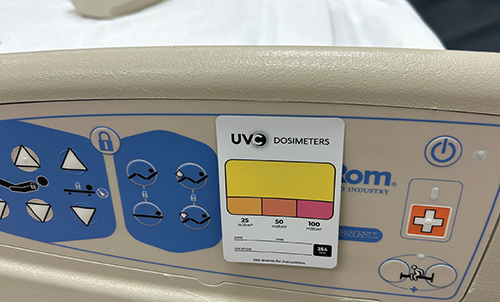Physician survey illuminates negative impact of prior authorization

Editor's Note The American Medical Association (AMA) annual, nationwide prior authorization survey reveals that over 90% of physicians believe prior authorization negatively impacts patient clinical outcomes. “More telling,” AMA reported July 17, is the fact that 78% of physicians report that this process “sometimes or often” leads to patients abandoning…
Study: Female, minority surgeons experience greater distress after adverse events

Editor's Note Surgeons and surgical trainees who are female or from minority racial or ethnic backgrounds report higher levels of negative emotions and self-doubt after adverse events, according to a recent study in JAMA Network Open. According to a June 5 report in MedPage Today, the single-site, mixed-methods study found…
Study: Robot surgery outcomes superior to laparoscopic metabolic, bariatric procedures

Editor's Note Two new studies show robotic surgery outperforming laparoscopic approaches to metabolic and bariatric procedures in terms of operating times, length of hospital stay, and complication rates, according to a June 11 report in Medical Xpress. Both studies were presented at the American Society for Metabolic and Bariatric Surgery…
Study: Infection risk unaffected by colonoscopy, joint replacement timing

Editor's Note A study published May 7 in JAMA Open found no significant risk of periprosthetic joint infection (PJI) when colonoscopy is performed within one year of total joint arthroplasty (TJA), whether the colonoscopy was done before or after the surgery. However, certain comorbidities such as kidney and pulmonary disease,…
Surface disinfection: How to play your cards right with UVC light

Approximately one in 31 hospital patients has at least one infection on any given day, according to the Centers for Disease Control and Prevention (CDC). In surgical settings, the risk is even higher, with up to 7% of patients developing an infection during surgery. These infections can lead to a…
Anesthesiologists push to improve pain control during caesarean delivery

Editor's Note A letter to the editor published April 10 in Anesthesiology, the official publication of the American Society of Anesthesiologists (ASA), calls attention to an official statement outlining best practices for ensuring all moms-to-be receive adequate pain management during planned or unexpected C-sections. The best practices are outlined in…
Study recommends against polyhexanide wound irrigation during open abdominal surgery

Editor's Note Although intraoperative wound irrigation is a common practice worldwide for preventing surgical site infections, a recent study suggests irrigation with polyhexanide solution should not be recommended as standard clinical practice in open clean-contaminated surgical procedures. Published February 21 in Jama Surgery, the study cautions that additional trials are…
Study: Weight loss drugs could increase risk of surgical complications

Editor's Note Popular weight-loss drugs like Ozempic and Mounjaro could lead to complications in surgical procedures, according to study published March 6 in the journal JAMA Surgery. The study focused on drugs known as glucagon-like peptide-1 receptor agonists (GLP-1 RAs) which are used to treat diabetes and obesity. The drugs, which…
Study data supports less radical cervical cancer surgery alternative

Editor's Note New research supports fertility preservation with cone biopsy as a viable, less radical option for to surgery in patients with early, low-risk cervical cancer, according to a report published March 18 in MedPage Today. Presented at the Society of Gynecologic Oncology annual meeting, the findings from the Gynecologic…
Lack of primary care physicians tied to emergency surgeries

Editor's Note Research shows that Americans who live in areas with a limited number of primary care doctors and nurse practitioners are at a greater risk for emergency surgeries and complications. The findings were published March 4 in the journal Health Affairs. For the study, researchers looked at Medicare patient…

 Free Daily News
Free Daily News